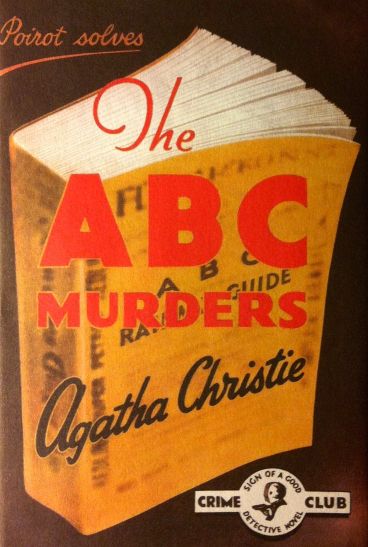Was Hercule Poirot a knowledge manager? This blog post by Hélène Russell explores how a much-loved character from the golden age of crime writing recommends that we deal with tacit and implicit knowledge, and advocates for the use of conversation to unearth complex knowledge.

If you were in the UK over the Christmas holidays (seems a long time ago now), you can’t have missed the striking new adaptation of Agatha Christie’s ABC Murders.
It didn’t seem terribly faithful to the book as I remembered it, so I decided to re-read the book alongside the series (and enjoy again a rattling good tale).
While re-reading the original story, I was struck by how Poirot (well, Agatha Christie) understood about knowledge and learning and the power of conversation and thought I’d share some extracts with you.
Here Hercule is explaining why his ‘feeling’ that there is something amiss about the murderer’s letters should be taken seriously.
“Not instinct, Hastings. Instinct is a bad word. It is my knowledge – my experience – that tells me that something about that letter is wrong.”
[…]
“But what is often called an intuition is really an impression based on logical deduction or experience. When an expert feels that there is something wrong about a picture or a piece of furniture or the signature on a cheque he is really basing that feeling on a host of small signs and details. He has no need to go into them minutely – his experience obviates that – the net result is the definite impression that something is wrong. But it is not a guess, it is an impression based on experience.”
Here Hercule is trying to unearth from a group of witnesses and the victims’ families, any facts or events, however small, that might link the seemingly random murders. So far the only similarity between the series of killings is that each victim’s name and home town links to a letter of the alphabet (the first victim was Alice Ascher of Andover).
“Telling everything you know always implies selection…. One cannot tell everything. Therefore one selects…. people select what they think is important. But quite frequently they think wrong!”
“And how is one to get at the right things? Simply, as I said just now, by conversation. By talking! By discussing a certain happening, or a certain person, or a certain day, over and over again, extra details are bound to arise.”
What do you think?
Was Hercule Poirot a subject matter expert and knowledge manager at heart?
Have you come across any other fictional characters whose knowledge and learning quotes would be useful for training and discussions? I would love to hear about them. You can email helenerussell@theknowledgebusiness.co.uk.
To read the article on the Knowledge for Lawyers website, please click here.